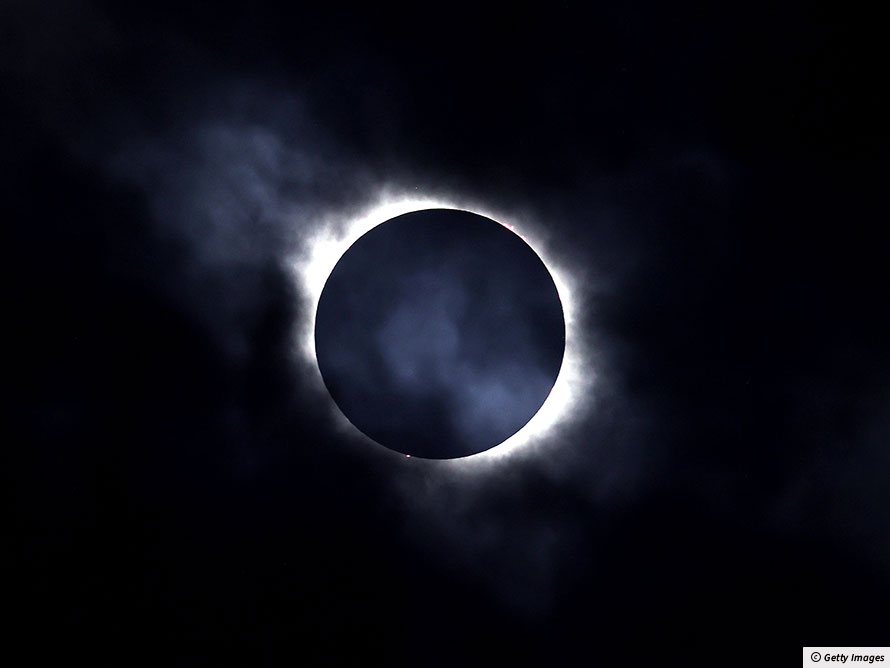Did it prove Einstein was right? A group of scientists planned for seven years to capture shots of the stars around the solar eclipse. It came very close to eluding them.
‘Mystical experience’ as millions see eclipse
 Ethereal: A solar blackout swept across North America giving 32 million people a rare and dazzling celestial show.
Ethereal: A solar blackout swept across North America giving 32 million people a rare and dazzling celestial show. Glossary
Nocturnal - Active at night and asleep during the day. The term derives from the Latin "nocturnus", meaning "of the night". Its opposite is "diurnal".
Texan - From Texas, a huge state in the southern US, next to the Mexican border.
Arkansas - A southern US state with a population of just over 3 million.
Vietnam - A Southeast Asian country with a population of nearly 100 million.
Albert Einstein - A German-born physicist, whose work in the early 20th Century revolutionised scientific understanding of the world.
Black hole - A region of space where the force of gravity is such that no matter or radiation can escape.
Empirical - Through observation or experience, rather than just theory.
